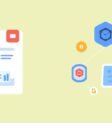
Artificial intelligence (AI) is revolutionizing the way organizations develop, manage, and optimize their content marketing strategies. By leveraging machine learning and automation, marketers can precisely target audiences, streamline workflows, and deliver personalized experiences across channels. In this article, we’ll explore the core principles, tools, actionable steps, ethical considerations, and future trends shaping the rise of AI content marketing strategy.
How AI Is Transforming Content Marketing
Artificial Intelligence is rapidly changing the landscape of content marketing, ushering in a new era of data-driven strategy and automation. By analyzing vast amounts of consumer data, AI can uncover actionable insights about audience behavior, empowering marketers to tailor content with greater precision. Automated tools powered by machine learning now streamline creation, curation, and distribution, minimizing manual effort while maximizing reach, consistency, and engagement.
AI-driven personalization adapts content in real time to user preferences and engagement patterns, making messaging more relevant and boosting conversion rates. Predictive analytics helps marketers forecast trends and optimize campaigns, ensuring content remains aligned with audience needs and business objectives. As organizations embrace these innovative capabilities, they position themselves to outpace competitors who depend on traditional tactics, unlocking increased growth and stronger customer loyalty.
What Is an AI Content Marketing Strategy?
An AI content marketing strategy is the systematic use of artificial intelligence technologies to streamline, automate, and enhance content operations throughout the marketing funnel. The heart of this approach is data-driven insights, which guide creation, distribution, and optimization to ensure resonance with target audiences.
Core Principles:
AI-driven content marketing centers on machine learning, natural language processing (NLP), and predictive analytics. These technologies can analyze massive datasets, spot emerging trends, and interpret user behaviors, allowing marketers to deliver highly relevant, timely, and personalized content at scale.
Major Benefits:
- Efficiency: Automating research, content creation, and distribution dramatically reduces manual workload and cuts turnaround times.
- Personalization: AI segments audiences and customizes messages to individual preferences for greater engagement and better customer experiences.
- Insight-Driven: Real-time analytics and pattern recognition help marketers make informed decisions, pivot strategies quickly, and predict content performance.
- Consistency: AI ensures brand messaging and voice remain unified across all channels and touchpoints.
Key Building Blocks:
- Data Collection & Analysis: Aggregating data from web analytics, social media, and CRM systems allows AI to spot content gaps and opportunities.
- Content Creation Tools: AI-powered generators can produce blogs, product descriptions, emails, and more, often aligning with briefs and SEO best practices.
- Content Distribution Automation: Machine learning algorithms optimize scheduling and channel selection for maximum reach.
- Performance Optimization: AI-powered monitoring and A/B testing help marketers continually refine their content strategies.
Marketers equipped with these foundations can create agile, scalable strategies tightly linked to changing consumer needs and preferences.
AI Tools and Technologies Powering Content Creation
Modern content creation thrives on a diverse array of AI-enabled tools designed to boost creativity, streamline planning, and optimize performance. Generative AI platforms like OpenAI’s ChatGPT, Google Gemini, and Anthropic’s Claude are leading the charge, crafting blog posts, marketing emails, scripts, and more with natural, high-quality language.
Visual content generation is made easy with tools such as Canva’s Magic Write and Midjourney, producing eye-catching graphics and images at scale. AI-powered chatbots—including Intercom, Drift, and Zendesk—instantly engage website visitors with personalized support and content recommendations that improve retention and satisfaction. For analytics, solutions such as HubSpot’s Content Strategy Tool and BuzzSumo deliver actionable insights on trending topics and audience engagement, guiding smarter content investments.
Automated editing and SEO suites like Grammarly, Jasper, and Surfer SEO ensure your content is readable, on-brand, and discoverable. Content management systems (CMS), such as WordPress and Contentful, now integrate AI plugins for everything from idea generation to tagging and automated distribution—further accelerating workflows and content consistency.
By combining these powerful technologies, organizations can build an AI content marketing strategy capable of consistently producing and optimizing high-value content for diverse audiences.
Step-by-Step Guide to Building an AI Content Marketing Strategy
Developing an effective AI content marketing strategy involves several actionable steps, each powered by intelligent technologies and platforms:
Step 1: Identify and Understand Your Audience with AI
Start by leveraging AI-driven analytics tools to gather detailed insights into target demographics. AI dissects customer data, segments behaviors, and analyzes social trends to help you create in-depth buyer personas—forming the foundation for relevant, magnetic content.
Step 2: Generate Content Ideas Using AI
Employ topic generation platforms that scan vast content networks to surface trending themes, untapped keywords, and timely subjects. By entering your core focus keywords, these tools suggest high-potential angles and formats for both SEO and audience engagement.
Step 3: Plan and Organize Content
Use AI-based project management software to automate your editorial calendar, optimize posting frequencies, and pinpoint the best publishing times. These tools assign tasks, set deadlines, and facilitate seamless progress from ideation to publication.
Step 4: Personalize Content with AI
Drive hyper-personalized experiences by using AI for micro-segmentation and custom recommendations. Machine learning dynamically adjusts headlines, product recommendations, and newsletters in real time for higher engagement and conversions.
Step 5: Optimize Content Performance
Leverage AI-powered optimization tools for post-publication analysis. With granular feedback on SEO, readability, and engagement, you can test headlines, imagery, and calls to action (CTAs) to continually enhance your strategy and outcomes. Performance dashboards help you identify wins and opportunities at a glance.
By following these steps, you’ll create a strategy that’s not only data-driven and efficient, but also tightly aligned with audience behaviors and business goals. For real-world inspiration, see how AI development companies are driving innovation with these same approaches.
Addressing the Challenges: Ethics, Transparency, and Pitfalls in AI Content Marketing
As AI-driven marketing ascends, businesses face new ethical, transparency, and quality challenges. Algorithmic bias is a major concern—AI systems trained on incomplete or skewed datasets can unintentionally marginalize specific groups or perpetuate harmful stereotypes. To counteract this, marketers must prioritize diverse data sources, rigorous audits, and ongoing monitoring of AI outputs.
Transparency is equally vital. Customers expect openness about when and how AI is used in shaping their online experiences. Clearly disclosing AI use, explaining how personal data is processed, and complying with regulations like GDPR are essential for building trust.
Authenticity is another common concern. Over-automation can produce generic messaging that fails to connect with audiences. To maintain a distinct brand voice, marketers should blend AI automation with hands-on human oversight—ensuring every interaction remains genuine and emotionally resonant.
Avoiding pitfalls means regularly auditing AI systems for errors, staying ahead of evolving ethical guidelines, and implementing clear governance practices. For organizations seeking success in AI content marketing, the right blend of technological innovation and responsible management is key.
The Future of AI Content Marketing Strategy
AI content marketing is rapidly evolving, with several trends defining its future. The rise of generative AI that creates natural, high-quality content at scale is a major development. Marketers are deploying advanced NLP for writing, summarizing, translating, and personalizing their content, driving unprecedented campaign efficiency and reach.
Automation will keep expanding, with AI tools handling even more of the ideation, keyword research, and real-time optimization that used to demand significant manual labor. This trend allows marketers to refocus on creativity, long-term storytelling, and strategy while AI manages repetitive or labor-intensive tasks.
Integration with technologies like predictive analytics, voice search, and augmented reality signals a new era of interactive, data-rich content experiences. As AI analyzes massive datasets to optimize timing, targeting, and messaging, future content marketing strategies will become even more relevant and customer-centric.
Roles within content marketing teams are also set to change. Creators will increasingly become AI supervisors and strategists, ensuring that automated outputs remain consistent with brand ethos and creative vision. As always, human insight, ethical principles, and transparency will remain crucial in shaping AI-powered campaigns for the long term.
Organizations that adapt swiftly—combining the precision and efficiency of AI with the creative and strategic input only humans can provide—will lead the field in delivering future-proof, high-impact content marketing strategies.
For more on leveraging tailored AI solutions in your marketing efforts, explore our guide to custom AI solutions.
Conclusion
AI content marketing strategy is transforming how brands attract, engage, and retain customers. By integrating advanced tools and ethical best practices, marketers can personalize outreach, maximize efficiency, and achieve stronger business impact. As new technologies and trends emerge, staying adaptive and prioritizing both human oversight and transparent AI use will be essential for ongoing success in the digital marketplace.
We encourage you to continue exploring how AI can fit within your marketing vision—and to do so with both innovation and responsibility in mind.






